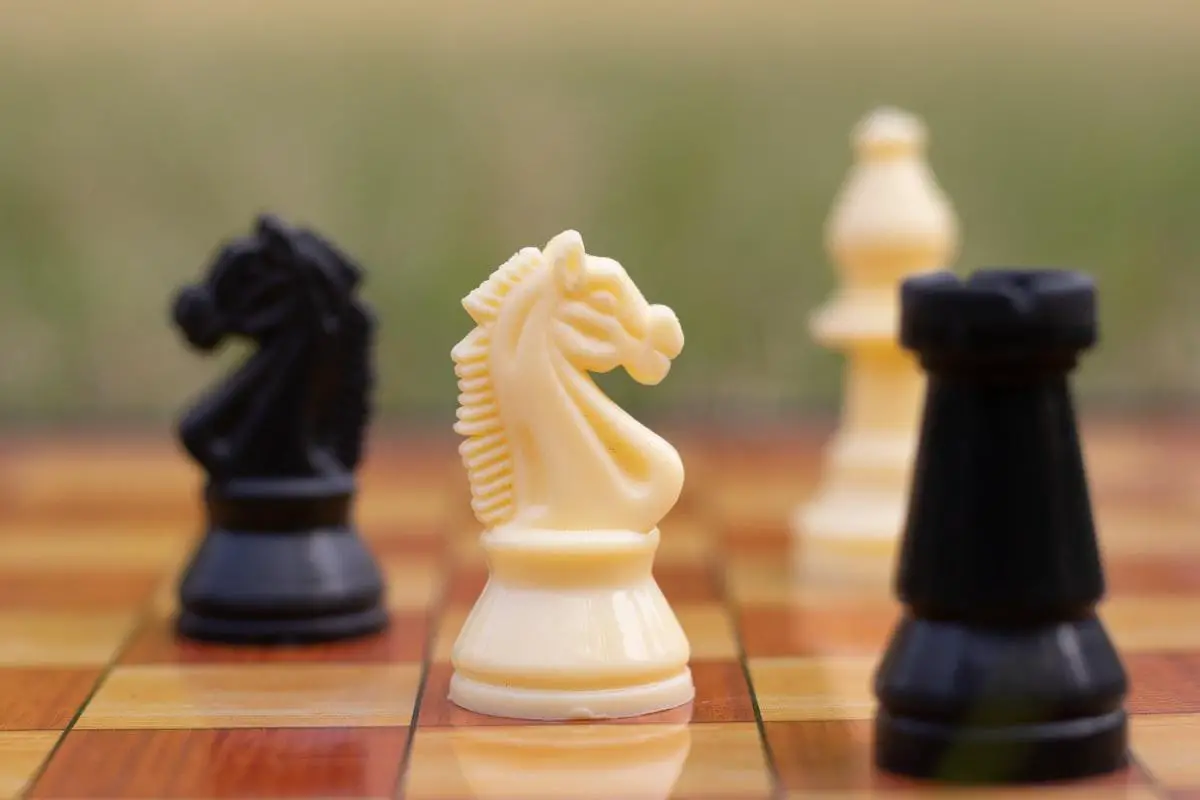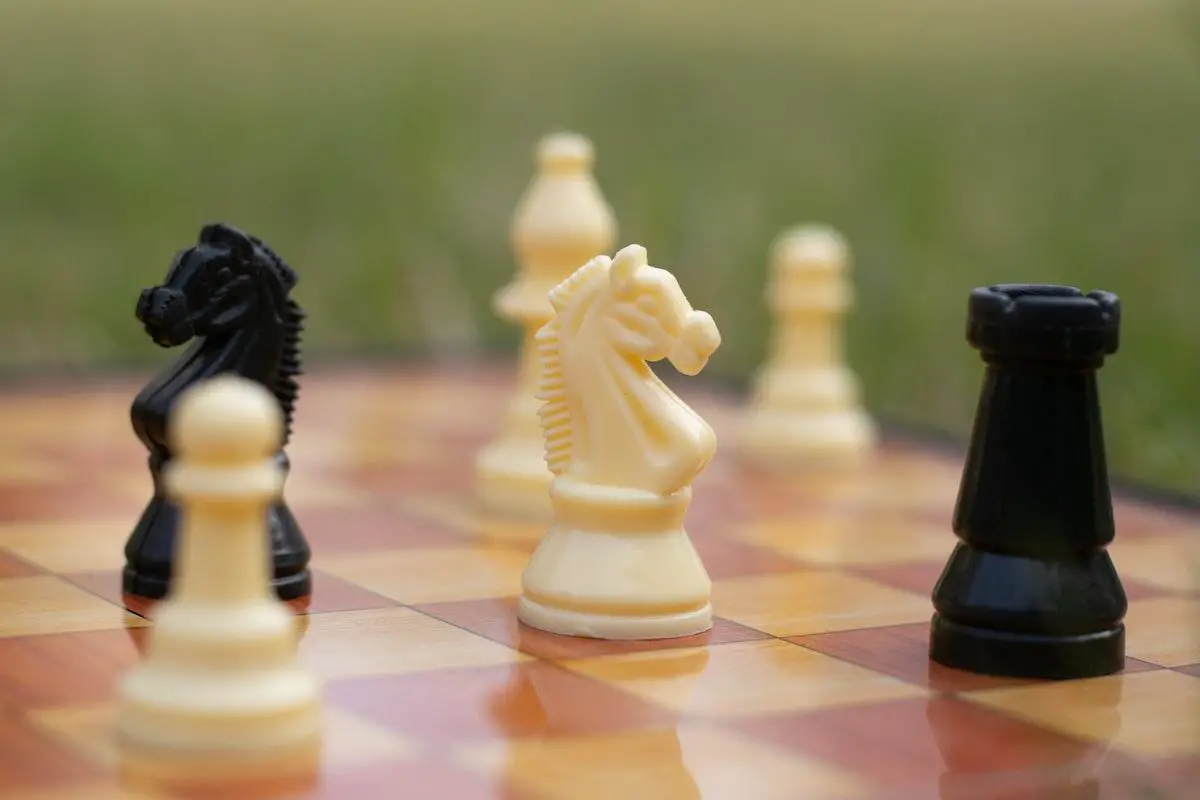Chess is a board game that has been played for centuries and is known for its strategic gameplay. The game requires two players who move their pieces around the board tactically and try to outsmart their opponent. Chess is a game of patience, intelligence, and strategy that has been enjoyed by people from all walks of life, from kings and emperors to scholars and enthusiasts. Often referred to as the “game of kings,” chess has captured the imagination of many, and is still widely played today. In this article, we will explore the rules, strategy, and benefits of playing chess.
The Strategy & Objective of Chess

The chessboard consists of 64 squares, arranged in an 8×8 grid of alternating colors. The game is played with 32 pieces, half of which are white and the other half black. Each player has a king, a queen, two rooks, two knights, two bishops, and eight pawns. The objective of the game is to “checkmate” the opponent’s king, which means putting it in a position where it is under attack and cannot move to any safe spots. Each piece moves differently, and players must use a combination of tactics and strategy to outwit their opponent while protecting their own pieces. The board and pieces are essential elements of the game and provide a beautiful and tactile experience for players.
Objective & Rules of Chess: Essential Guide

The rules of chess are relatively easy to learn but mastering the game requires practice and experience. The game begins with the two players positioning their pieces on opposite sides of the chessboard. Each player takes turns moving one piece at a time. The game ends when one player checkmates their opponent’s king or when both players agree to a draw. A draw can also happen when neither player has enough pieces to checkmate the opponent’s king. The rules of chess have been developed over centuries, and they have remained virtually unchanged, indicating the elegance and sophistication of this pastime.
The Mental, Emotional, and Social Benefits of Chess
Playing chess has numerous benefits for individuals of all ages. One of the most well-known benefits is the mental boost it provides. Studies have shown that regularly playing chess may help improve cognitive skills such as memory, attention, problem-solving, and decision-making abilities. It can also assist in keeping the brain sharp as people age. Chess has also been known to help with emotional regulation, decreasing stress levels in players and increasing patience and resilience. Lastly, playing chess can be a social activity that promotes sportsmanship and camaraderie. Chess tournaments and clubs offer opportunities for players to connect with like-minded people who share a common interest in this timeless game. Overall, chess is an intellectual activity that can provide lifelong benefits to the brain, body, and soul.
Mastering Chess Strategies and Tactics
Strategy and tactics play a vital role in winning a game of chess. The opening moves of a chess game can set the tone for the entire game and can provide advantages or disadvantages to players. There are various opening strategies that chess players can utilize, each with its particular strengths and weaknesses. A player’s approach to the middle and endgame also affects the outcome of the game. Planning, analyzing moves, and anticipating the opponent’s moves are crucial to achieving success in the game. Chess players also utilize tactics such as forks, pins, and sacrifices to outsmart their opponents and gain a material advantage in the game. Recognizing these tactics and knowing when to use them can turn the tide of the game in a player’s favor. By mastering the art of strategy and tactics, chess players can become successful not only in the game of chess but also in life.
Exploring Variants of Chess: Types & Rules
There are numerous variants of chess that have been invented over the years. While they all share the same basic gameplay, many variants introduce unique rules that change how the game is played. One popular variant is Blitz chess, which is a faster version of traditional chess that puts players on a time limit of 5 minutes per game. Bullet chess is an even faster variant, with only 1 minute per game, which demands lightning-fast reflexes. Fischer Random, also known as Chess960, is a variant introduced by former world champion Bobby Fischer, which involves setting up the pieces randomly at the starting position, giving players a chance to apply their creativity to a new game scenario. Exploring these variants of chess can provide a refreshing experience for players of all skill levels. While some of these variants may be challenging, they can also be a fun way to improve one’s chess skills and try out new tactics.
Discover Fun and Challenging Chess Variants
In conclusion, chess is a game that has persisted throughout the centuries and still continues to captivate players and enthusiasts alike. Its rules and strategies are easy to learn, yet the game itself is rich, complex, and always evolving. Not only is it a fun and engaging pastime, but it also provides numerous benefits for individuals’ mental and emotional health. Whether it’s played for leisure or competition, chess offers a unique opportunity for socialization and camaraderie. With its endless variations, chess remains an inclusive activity that can be enjoyed by people of all ages and backgrounds. Overall, chess is a game that provides numerous benefits for the brain, body, and soul and remains an educational and entertaining activity worth exploring.
Chess FAQ: Learn, Play, Improve.
What is chess, and how is it played?
Chess is a strategy board game played by two players on a square board consisting of 64 squares. Each player starts with 16 pieces: one king, one queen, two rooks, two knights, two bishops, and eight pawns. Players take turns moving one piece at a time, with the objective of checkmating their opponent’s king.
What are the benefits of playing chess?
Chess benefits mental, emotional, and social health. It helps improve cognitive skills, such as memory and decision-making, reduces stress levels, increases patience, and promotes sportsmanship and camaraderie.
How can I improve my chess skills?
To improve your chess skills, it is essential to practice regularly, analyze your gameplay, learn opening strategies, and master tactics, such as forks, pins, and sacrifices. Joining a chess club or participating in tournaments can also help improve your skills.
What are some popular variants of chess?
Popular variants of chess include Blitz chess, Bullet chess, Fischer Random, and Three-check chess. These variants introduce unique rules that change the game’s dynamics, providing new challenges and exciting gameplay.
Are there any age restrictions for playing chess?
No, there are no age restrictions for playing chess. It is a game suitable for all ages, making it an excellent activity to enjoy with friends and family.
How long does it take to learn chess?
Learning the basics of chess can take a few days to a couple of weeks. However, mastering the game and improving skills requires time, practice, and dedication.
Can playing chess help enhance productivity?
Yes, playing chess has been linked to increased productivity, both in personal and professional life. It helps enhance concentration, focus, and logical reasoning, which can help in problem-solving and decision-making skills.